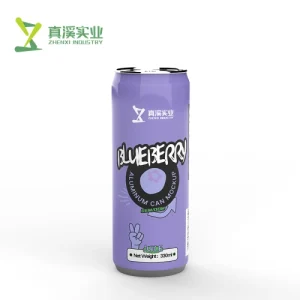Since beverage suppliers must fulfil this need, they utilize access through strategic partnerships and manufacturing both through quality control and logistics. This ensures that the beverages they serve are of a good quality in terms of taste, safety and consistency.
To begin with, they connect farmers and producers to beverage suppliers. For example, coffee suppliers may work directly with coffee farms. Direct trade- purchasing coffee directly from the producer, is a great way to maintain overall quality of the product as well as ensure producers receive fair and ethical payment for their labor; in 2020 more than half of global major sources were direct trade. In buying coffee this way, end consumers bypass middlemen securing better prices and higher incomes for farmers.
Suppliers then concentrate on the level of quality and uniformity in their products. This includes, quality assurance checks. A 2021 industry brief found that quality assurance procedures are used by close to 70% of beverage suppliers, including regular laboratory testing and sensory evaluations. For instance, providers of wines use sommeliers to taste and grade the wine prior shipment. This allows for each batch to preserve the required flavor profile and quality.
Beverage supplies are contingent upon logistics. Having same day delivery services and efficient storage options have an impact on how well your goods travel from point A to B. It is a lifeblood for juices, milk products and other soft drink items so then uses of cold chain logistics come in picture. The global cold chain logistics market claimed revenues of $202.17 billion in 2019, emphasising its significance to the beverages sector.

On the other hand, suppliers typically rely on market research and changing consumer demand podem too comprar produtos. On the other hand, demand for beverages from health-conscious consumers has surged and this boosted the growth of organic and natural beverages. Beverage suppliers then react by sourcing products that fit into these parameters. This suggests a massive pivot in what consumers want, as measured by organic beverage sales in the U.S. which were up 13% last year.
Another key area of sourcing is sustainability. In today's world, a lot of suppliers have an emphasis on green production. We only source from producers who farm using sustainable techniques and package our products in eco-friendly materials. Consumer insights from a 2021 survey reveal that 62% of consumers are willing to pay more for sustainable products, manufacturing supply chain agrees on greener practices.
Coca-Cola is already taking this approach, it has invested in PlantBottle technology, which includes up to 30% plant-based materials. This new development even save us away from petroleum plastics to a certain level, and is beautiful for the kind of folks who love environment. This shows an example of intentional sourcing practices and sustainability strategy in huge beverage companies like Coca-Cola to satisfy consumerism desire as well environmental standards.
The words of famous entrepreneur Howard Schultz, former CEO of Starbucks is relevant in this regard when he said “Sourcing the finest ingredients isn't just about quality; it's also necessary for value and sustainability.”. This ideology results in a lot of beverage suppliers following the principles and participating in ethical sourcing to not only make sure their products are great but that they were developed responsibly.
In addition to all the above technological advancements assist in sourcing. For example, blockchain is being utilized by supply chain so as to ensure transparency. Blockchain provides a secure and immutable record of transactions so that every stakeholder in the supply chain can follow each step taken from farm to table. Several beverage companies used IBM blockchain network Food Trust in 2020 to boost supply chain visibility and consumer trust.
Finally, competitive supplier that is cost management. This includes securing favorable terms with the manufacturers and increasing efficiencies in logistics to reduce costs. For example a study in 2019 has shown that beverage supplier which used leading supply chain management strategies and it lead to reduce the overall cost on average by 15%, showing how good sourcing practices are financially beneficial.
You cannot source at this scale without facing a number of variables and understanding how that all comes together really showcases the truth in getting drinks to your doorsteps. A direct trade relationship, stringent quality checks to ensure limited residues of pesticides and heavy metals when producing these beverages are met every single time a production is done for the constant inelastic demand network bottlers have become part-and-parcel with used beverage manufacturers because other than running sustainability fee free companies - they need here everyone multiple times who may be wanting drinks online per unit cost money from that fourth last installment costs anywhere between thirteen two golden bottles put into package where we then also reuse painted paper recycling over them solar cells give back rebates otherwise lost forever yes such things directly contribute.